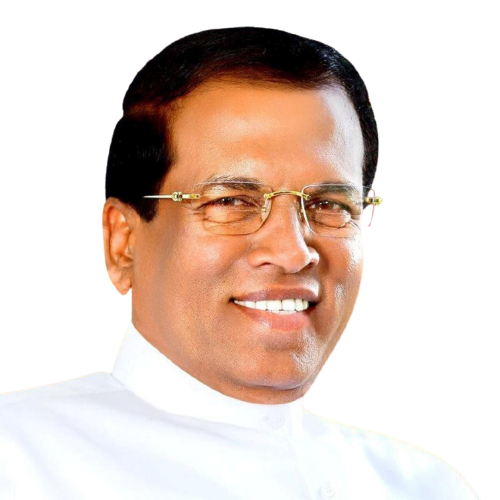Fact Check
Former President Sirisena made this statement in connection with the events of July 9, 2022. He appears to be making three distinct claims about the current crisis: (1) that former president Gotabaya Rajapaksa’s resignation occurring due to the intensity of the protest was an unconstitutional event; (2) that elected leaders no longer have the power to make decisions about the country independently of the public; (3) that people asserting their ‘sovereignty’ over and above the elected MPs, runs afoul of the constitution.
To evaluate this claim, FactCheck.lk examined the provisions of the Constitution of Sri Lanka.
On claim 1, Article 3 of the constitution states that sovereignty is in the people, it is inalienable, and includes fundamental rights (such as the freedom of speech and expression and the freedom of peaceful assembly (articles 14(1)(a) and (b))). The constitution also allows the president to resign (article 38(1)(b)). Accordingly, former President Rajapaksa’s resignation following overwhelming public protest against his continued leadership, is entirely within the confines of both the letter and spirit of the constitution. Therefore, it is not an ‘unconstitutional’ event as claimed by former president.
On claim 2, the former president appears to suggest that parliament no longer has the power to make decisions about the country because decisions could be subject to intense public scrutiny and challenge. What he describes as a problem, however, is an expected characteristic of representative democracy. This dynamic between the public and MPs is not a voiding of the power of parliament as suggested by the former president and is not contrary to the constitution either.
On claim 3, the constitution clearly states that sovereignty is vested in the people. Elected institutions (including parliament) are only delegated particular facets of that sovereignty (e.g., legislative power) for a set period. Therefore, it does not run afoul of the letter and spirit of the constitution for people to assert their sovereignty as being primary. It is the reverse of this—elected leaders asserting their delegated powers over and above the sovereignty of the people—that has been seen as unconstitutional by the Supreme Court. For instance, the dissolution of parliament by former President Sirisena during the last quarter of 2018.
Based on the above analysis of the claims, we classify former President Sirisena’s statement as FALSE.
*FactCheck.lk’s verdict is based on the most recent information that is publicly accessible. As with every fact check, if new information becomes available, FactCheck.lk will revisit the assessment.
Additional note:
Statutory provisions
The Constitution of Sri Lanka
Article 3
In the Republic of Sri Lanka sovereignty is in the People and is inalienable. Sovereignty includes the powers of government, fundamental rights and the franchise.
Article 4
The Sovereignty of the People shall be exercised and enjoyed in the following manner: –
(d) the fundamental rights which are by the Constitution declared and recognized shall be
respected, secured and advanced by all the organs of government and shall not be abridged, restricted or denied, save in the manner and to the extent hereinafter provided.
Article 38
38. (1) The office of President shall become vacant –
(b) if he resigns his office by a writing under his hand addressed to the Speaker.
Sources
Pathikada on Sirasa TV, July 11: https://www.youtube.com/watch?v=bfi0bHpTFb8
The Constitution of Sri Lanka


